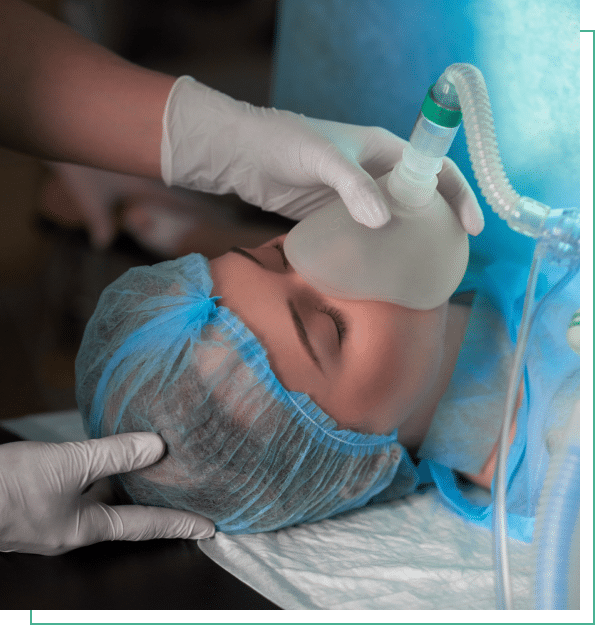
- Home
- Specialties
- Anesthesia

Feel no pain, experience the best care
Anesthesia
Anaesthesia means “loss of sensation“. Medicines that cause anaesthesia are called anaesthetics. Anaesthetics are used during tests and surgical operations to numb sensation in certain areas of the body or induce sleep.
This prevents pain and discomfort, and enables a wide range of medical procedures to be carried out.
Our Anaesthetists manage the breathing and airway, drug and fluid balance, and all the vital functions during surgeries, meaning they are responsible for a patient’s life during operation.
Their immense expertise on the surgical table makes the procedure uncomplicated for the patient and undemanding for the surgeons.

Feel no pain, experience the best care
Anesthesia
An anesthesiologist or Anaesthetist at Sammprada Hospital is uniquely qualified to coordinate the care of patients’ perioperative ie before, during and after surgery. It allows the safe usage of medical drugs to induce an artificial state (which is reversible) of total or partial lack of responsiveness to surgical procedures so that they can be carried out smoothly without causing any discomfort to the patient.
Depending on many parameters, mainly the duration of the surgery and your health condition, the aesthetic agent to be safely used, will be decided by your Anaesthetist.
Local anaesthesia
- Conscious or intravenous (IV) sedation
Regional anaesthesia
General anaesthesia is an example of the type of Anaesthesia used.
It works in tandem with other departments and offers general anesthesia, local anesthesia, pain medicine, intensive care medicine and critical emergency medicine.
Pain can be debilitating and frustrating. It may interfere with sleep, work, activities, and quality time with friends and family. Pain management provides relief so you can enjoy life.
But treatment is complex and can lead to harmful effects if not properly administered and monitored. Pain management may require the involvement of a physician anesthesiologist who specializes in pain medicine

Anaesthetist also takes care of the intensive care unit because of their extensive training in clinical physiology/pharmacology and resuscitation. In the ICU, he directs the complete medical care for the sickest patients. The role of the anesthesiologist in this set includes the provision of medical assessment and diagnosis in coordination with the treating consultants, respiratory and cardiovascular support and infection control.
Our Anesthesiologists also possess the medical knowledge and technical expertise to deal with many emergency and trauma situations. The anesthesiologist or Intensivist as one may term him in critical care management provides airway management, cardiac and pulmonary resuscitation, advanced life support and pain control, all of which are essential skills to the intensivist.

